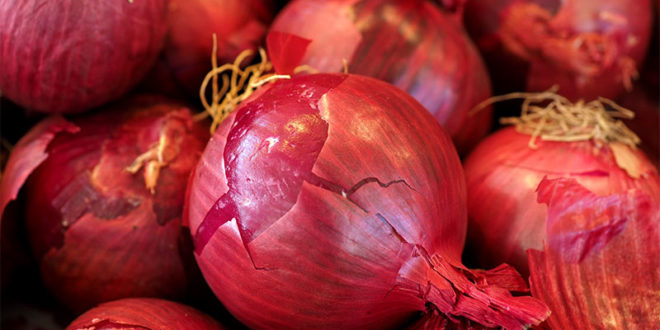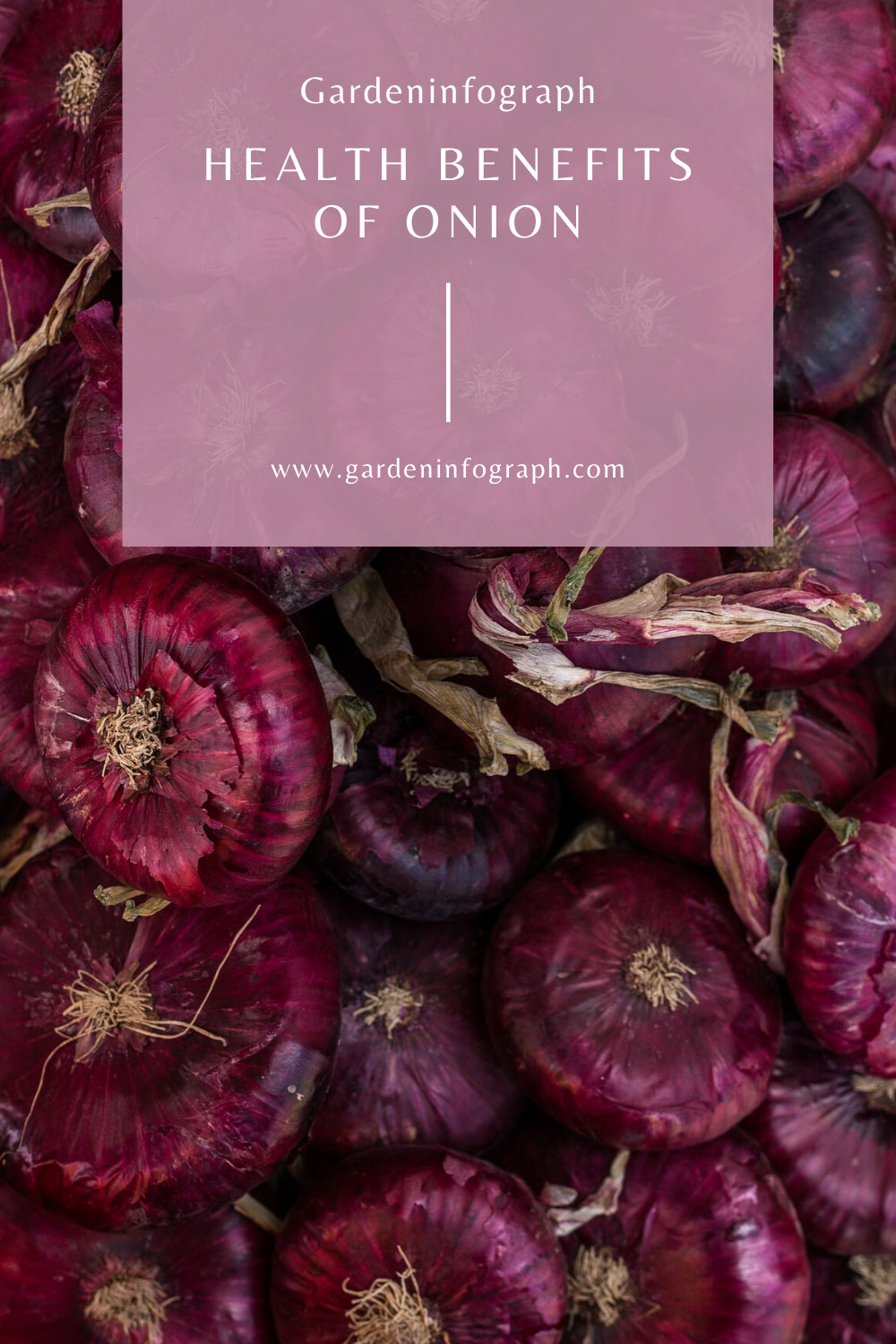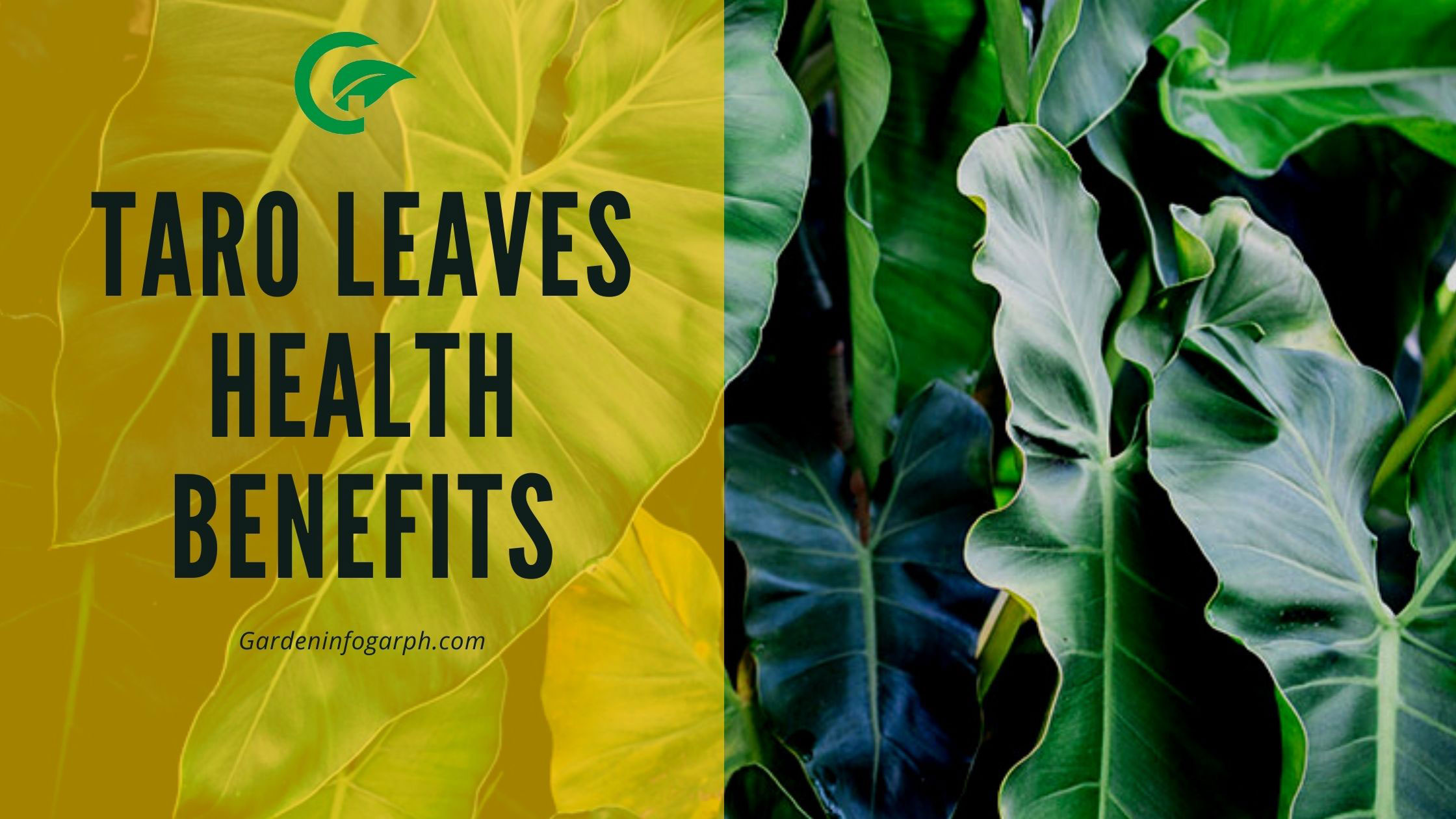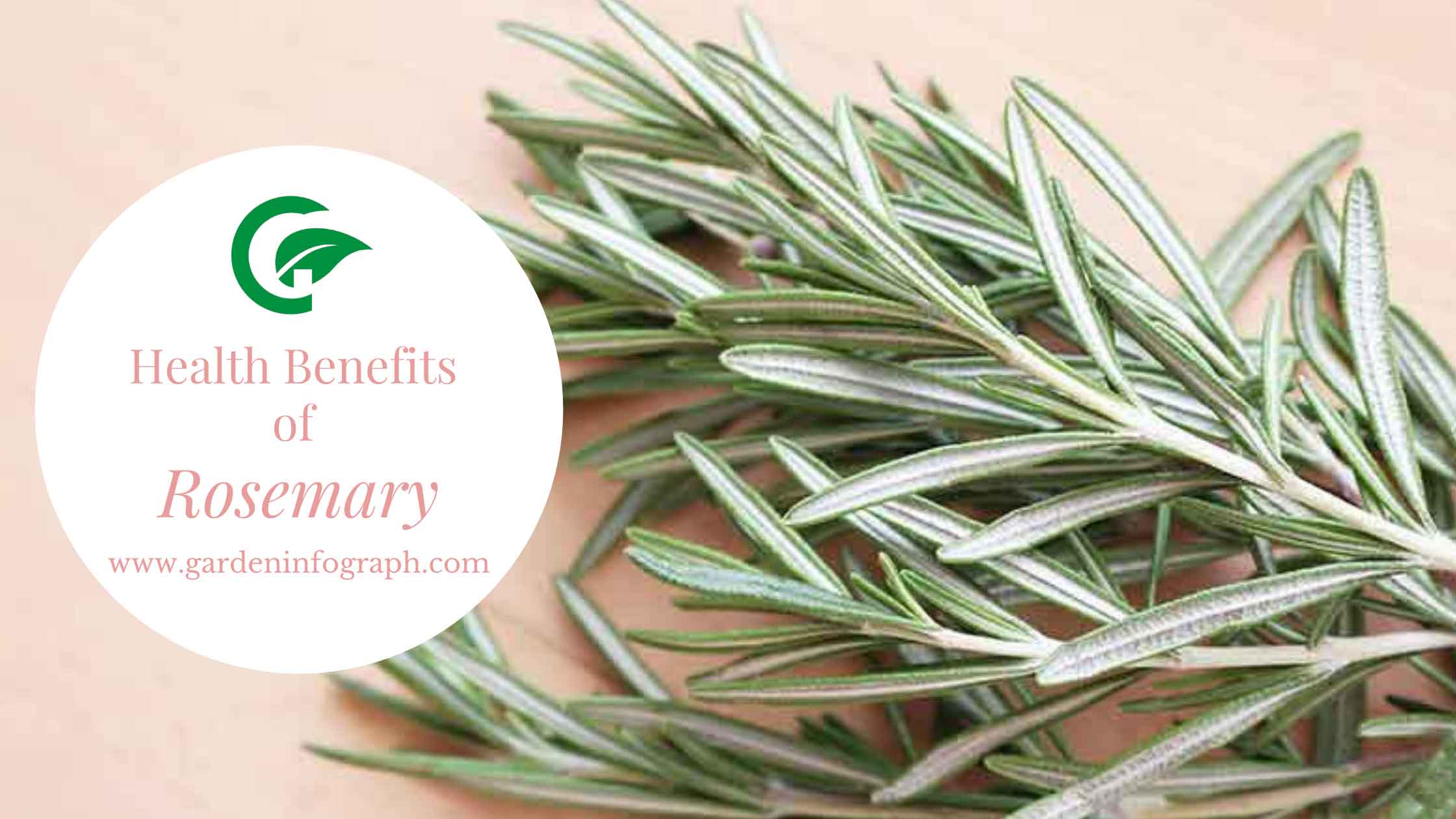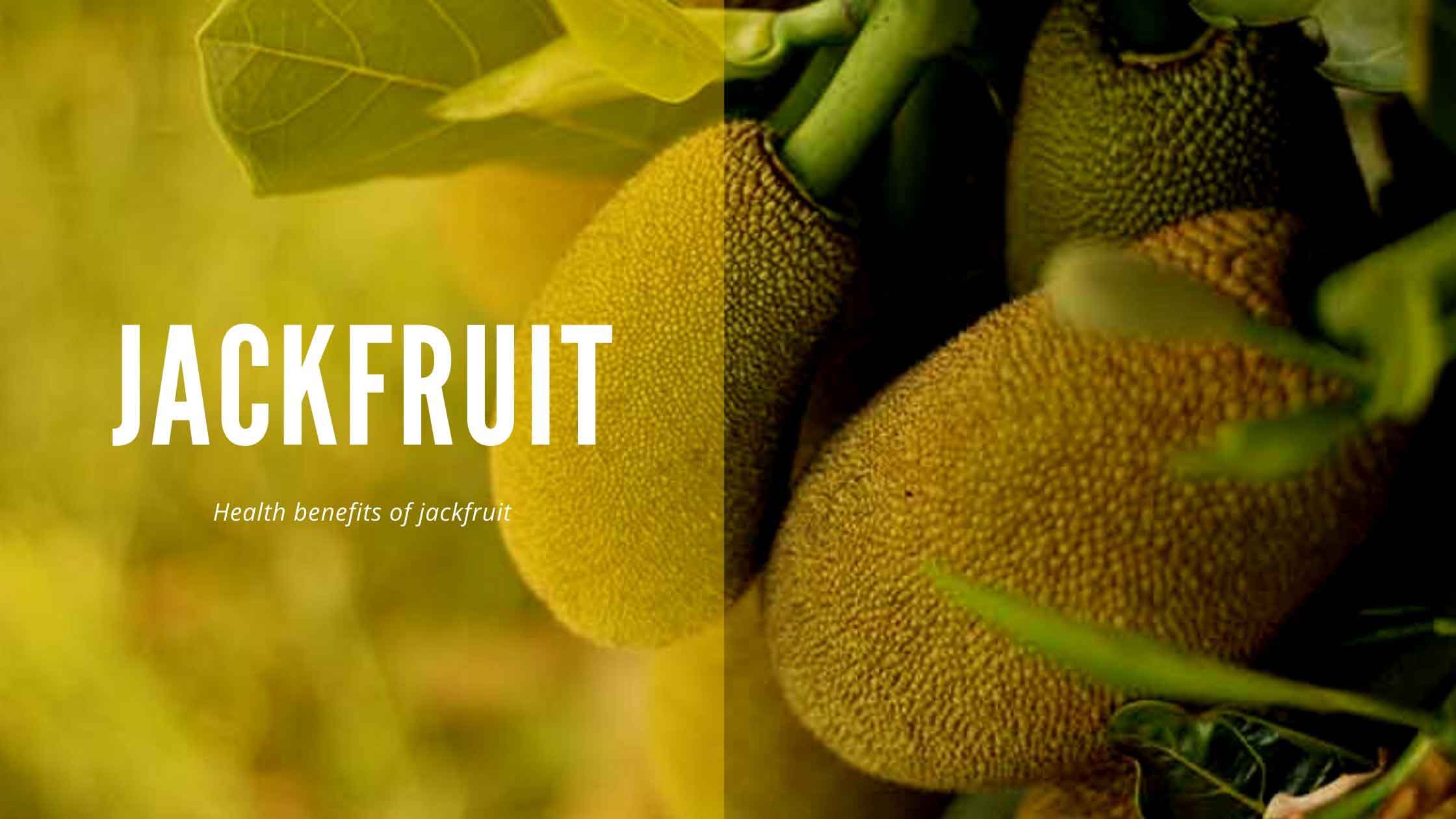Onion
Onion is also known as “the bulb onion” or “common onion”. Its botanical name is “Allium cepa”. It is originated in Iran, Indian subcontinents and central Asia, though its origin is very uncertain. It is widely used in the span of western and eastern Asia.
Onions are used in many countries in different cuisines. Onions is a vegetable that has multiple uses other than food. It heals our body in many different ways.
Onions are recorded since bronze age which is around 5000 BCE. They are not only known for, adding flavors to many dishes but also known for their durability in storage and transportation. In ancient times Egyptians viewed onion as a symbol of eternal life because of its rings.

Nutritional value of onion
- Onion contains good amount of phosphorous, manganese, magnesium and potassium.
- It also contains small amounts of calcium, iron and zinc.
- It also has the benefits of vitamin B6, vitamin C and folate (B9) and Thiamine.
- This contains very less amount of riboflavin and niacin with large quantity of water.
Health benefits of onion
It fights cancer
Eating vegetables of the Allium genus like garlic and onions has resulted in lowering the risk of certain cancers, including stomach and colorectal.
A study showed that people who consumed allium vegetables in high amounts, they were 22% less likely to be diagnosed with stomach cancer as compared to those who consumed less.
The highest onion intake has also reduced the risk of colorectal cancer.
Sulfur compounds and flavonoid antioxidants found in allium vegetables like onion is the main reason behind fighting cancer-causing bacteria and fights against free radicals.
Research of NCBI proved that onions provide onionin A, a sulfur-containing compound that has been shown to decrease tumor development.
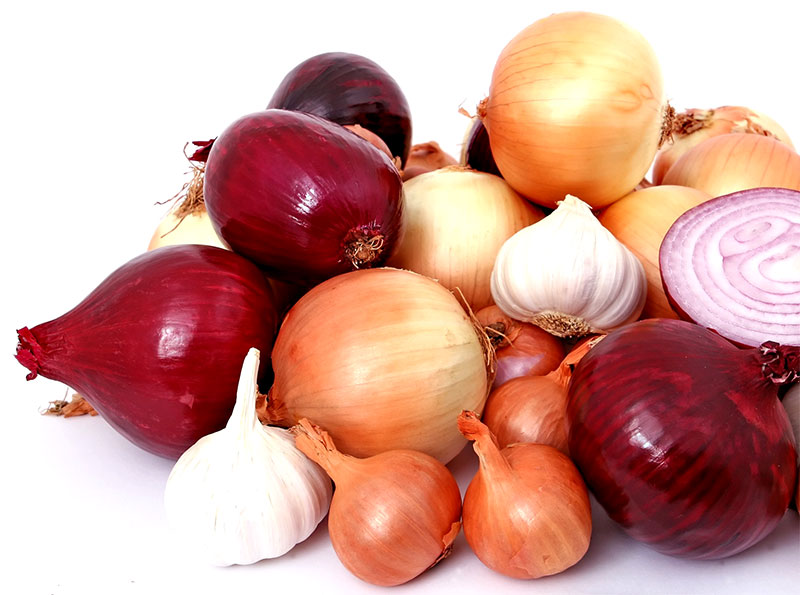
Good for skin and hair
As mentioned above onions are high in vitamin C.
It is proved by the scientists that vitamin C, which is present in many all the sour fruits is needed for the building and maintenance of collagen, which provides health and glow to the skin and makes our hair strong and thick.
Benefits heart health
One of the major risks that our heart face is cholesterol, 90% of people today suffer from this problem. Onions contain a good amount of anti-oxidants and anti-inflammatory properties, that aids in reducing the cholesterol levels of our body.
Anti-inflammatory properties present in onions also helps in the reduction of high blood pressure and prevents the formation of blood clot which is the major cause of heart stroke. Quercetin is a flavonoid antioxidant which also acts as an anti-inflammatory agent because of which risk of heart problems fade.
Additionally, evidence from animal studies supports that onion consumption may reduce risk factors for heart disease, including inflammation, high triglyceride levels and blood clot formation
Anti-inflammatory
Quercetin is an anti-oxidant which is a very powerful anti-inflammatory agent. It found in onion. It gives relief to our muscles and aids problems like asthma. Anti-oxidants increase the oxygen in our blood and hence increasing the amount of oxygen supply to the heart, brain and lungs.
Immune system
Another anti-oxidant present in onion is called “The polyphenols”.
This anti-oxidant present in onion protects the body from harmful free radicals. More amount of intake of anti-oxidants increases the number of RBCs and WBCs which fights the un-necessary bacteria and free radicals that cause damage to our body and increases immunity.
Eating something that is not required by our body, can cause many problems because as soon as we consume something that is unwanted, immediately our body starts the process of throwing it away from the body. If it does not happen the body starts reacting and that reaction turns out to be allergic.
Histamines are the compounds that are produced by the body because of the allergy, which is responsible for the itching, sneezing and crying. Quercetin anti-oxidant stops the production of histamines.
Improves digestion
The fiber in onions promotes good digestion and helps keep you regular. Additionally, onions contain a special type of soluble fiber called oligo fructose, which promotes good bacteria growth in your intestines.
A study found that oligo fructose may help prevent and treat types of diarrhea. The phytochemicals in onions that scavenge free radicals may also reduce the risk of developing gastric ulcers.
Keep check on our blood sugar
The chromium in onions assists in regulating blood sugar. The sulfur in onions helps lower blood sugar level by increasing insulin production.
A study in the JEHI revealed that this might be helpful to people with diabetes. People with Type 1 and Type 2 diabetes who ate red onions showed lower glucose levels for up to four hours.
A 2014 meta-analysis in the journal Nutrition found that patients with Type 2 diabetes saw more normalized liver enzymes and lower glycemic levels when consuming sliced onions.
Elevates the mood
Folate, found in onions, might help reduce depression. Homocysteine prevents blood and other nutrients from reaching the brain, and folate prevents this chemical from building up.
Excess homocysteine also interferes with the production of the feel-good hormones serotonin.
Dopamine, and norepinephrine, which regulates not only mood but also sleep and appetite.
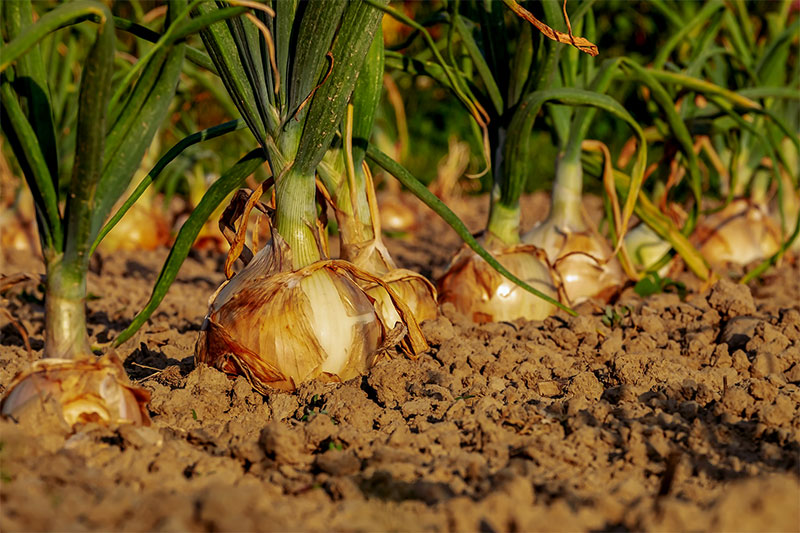
Also Read: How to grow Onion
Increases bone density
Though dairy gets much of the credit for boosting bone health, many other foods, including onions, may help support strong bones.
A study proved that women of 24 middle-aged and postmenopausal showed improved results. Increase in bone density, who consumed onion juices for a continuous time period of 4 weeks.
Women’s bone density is lesser than that of men, therefore, problems like hip fracture is seen more in older women as compared to men. Consuming onion juice in old age has resulted in bringing back lost bone density.
Side effects of onions
- The carbohydrates in onions may cause gas and bloating if consumed much.
- Onions, if consumed raw, can sometimes in extreme situation can worsen heartburn in people who suffer from chronic heartburn or gastric reflux disease.
- If consumes in large quantity can thicken the blood. (do not consume much if you are taking blood-thinning pills)
- People with onion allergies may experience red, itchy eyes and rashes if an onion comes into contact with the skin.
- People might also experience nausea, vomiting and other gastric discomforts who dislike it or are allergic to it
Here at gardeninfograph we try to bring in front of you many relatable topics that are can add up to a healthy diet in your homes to keep your family and friends healthy. Some topics that we have covered are eggplant, cucumber, garlic, parsley, dragon fruit, giloy, edible flowers, cardamom, black pepper, kiwi, hala fruit, olive, potato, basil, eggplant, cauliflower, Neem and you will find many more.
 Garden infograph We provide our best experinces about plants
Garden infograph We provide our best experinces about plants
